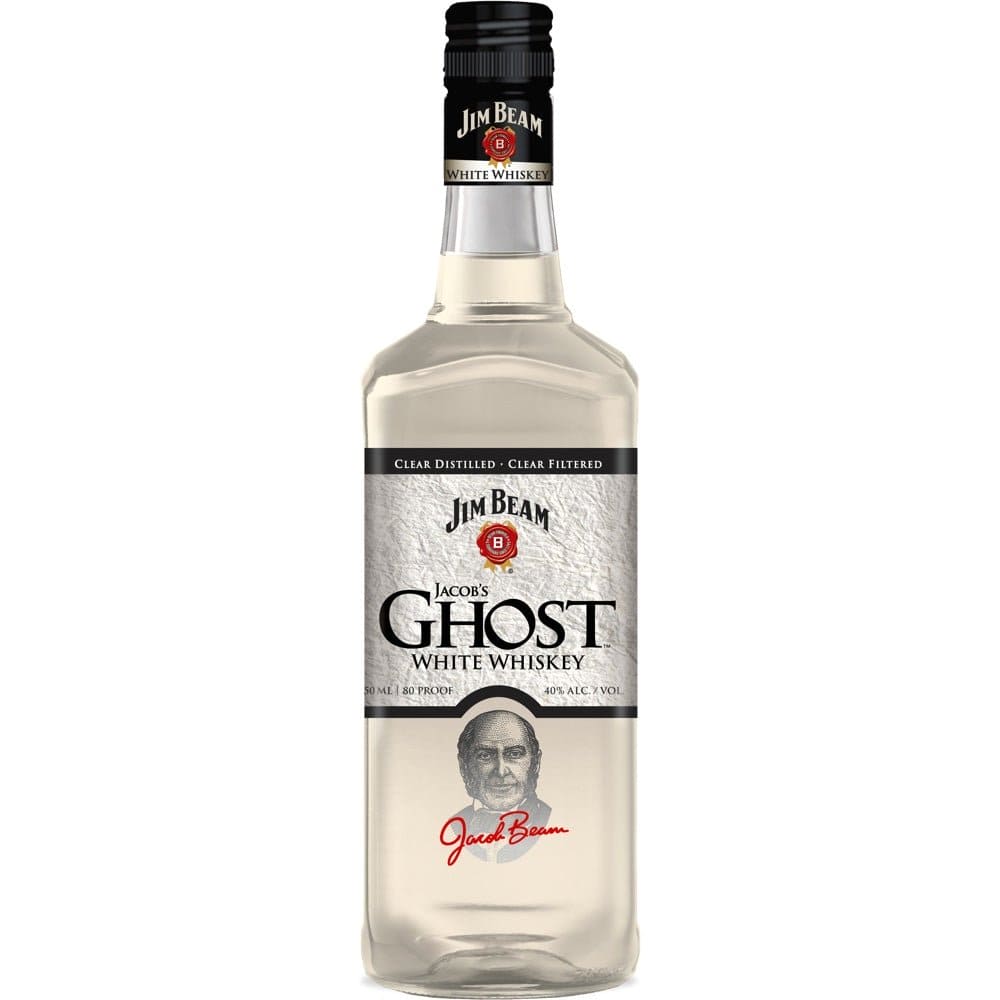
Jim Beam Jacob's Ghost White Whiskey
Experience the Legacy of Jim Beam Jacob's Ghost White Whiskey
Step into a world of rich history and flavor with Jim Beam Jacob's Ghost White Whiskey. Rooted in the craftsmanship of Jacob Beam, the founder and first distiller in the early 18th century, this unique whiskey represents a time-honored tradition reimagined for modern palates.
Why Choose Jacob's Ghost?
- Unique Flavor Profile: Enjoy a lighter, more flavorful whiskey experience that sets itself apart from traditional options.
- Perfect for Cocktails: Elevate your mixology with a spirit that adds a lively touch to any cocktail.
- Aromatic Delight: Indulge in the inviting aroma of light vanilla complemented by soft barrel-aged notes.
- Rich Tasting Experience: Savor the hues of whiskey with a sweet flavor, rounded out by hints of vanilla that tantalize the taste buds.
Crafted for the Modern Whiskey Lover
With over 200 years of heritage behind it, Jim Beam Jacob's Ghost White Whiskey is not just a drink—it's a celebration of whiskey's past, perfect for those who seek a fresh twist on a classic. Embrace the spirit of Jacob Beam and make every moment memorable.

Explore a World of Spirits and Liquor through our Comprehensive FAQ Section.
Discover a World of Spirits and Liquor in our Helpful FAQ Section.
Types of Spirits
- Whiskey: Made from fermented grain mash and aged in wooden casks.
- Vodka: Typically distilled from grains or potatoes and known for its clear, neutral flavor.
- Rum: Produced from sugarcane byproducts like molasses or sugarcane juice.
- Tequila: Made from the blue agave plant, primarily in the area surrounding Tequila, Mexico.
- Gin: Distilled with botanicals, primarily juniper berries, giving it a distinctive flavor.
Production Process
- Fermentation: The process where yeast converts sugars into alcohol.
- Distillation: Separating alcohol from the fermented mixture to increase its concentration.
- Aging: Storing spirits in barrels to develop flavors over time.
Tasting and Pairing
- Tasting Notes: Learn to identify different aromas, flavors, and textures.
- Food Pairings: Discover which spirits complement various dishes, enhancing the dining experience.
Cocktails and Mixology
- Classic Cocktails: Recipes and techniques for making popular drinks like the Old Fashioned, Martini, and Mojito.
- Mixology Tips: How to balance flavors and create your own cocktail recipes.
History and Culture
Origins: The historical background of different spirits.
Cultural Significance: How spirits are enjoyed and celebrated around the world.

